.jpg)
This article is for all people who like to be prepared regarding health.
Since the pandemic began, health is a popular subject. We lost our freedom for our health and for the health of others.
Health is influenced by multiple factors among which a pretty important one is food. This article also consider current events, as the pandemic also showed us that the food supply chain can be disrupted by world events. The current disruption of the food supply chain is not an opinion, it's public information. Even the Web Economic Forum (WEF) talks about how current world events affect food security. Here're some key points regarding our food security:
- Russia and Ukraine supply significant quantities of foods to global markets. The prices of those foods already increased, since the food supply chain was disrupted by the Russia-Ukraine War.
- Also, modern agriculture needs fertilizer to produce food. Since a large portion of world's fertilizer is trapped in Russia and Ukraine, fertilizer prices already increased. If farmers have higher prices for fertilizer, we also have higher prices for the food they produce.
- If Europe's energy supply will be disrupted by the Russia-Ukraine war, the food supply chain might be affected even more, as energy is needed for everything.
- An increased oil price will also reflect in food prices, as fuel is needed for everything. Regardless of the oil price, there's no such thing as a free lunch. Every lunch has 1 price, it has to be paid somehow. In the same way, our current War and Pandemic imply a price that has to be paid somehow. And we already see this price in the increasing prices.
- Long-run predictions state that extreme weather can increase food insecurity.
This article is not about fear, it's about being realistic and about taking control of our future.
If we're realistic we have enough facts to figure out that things will not be the same and the only constant is change.
If we're realistic we also know that current food supply chain disruptions can affect:
- food affordability: food prices will continue increasing and we'll afford less food.
- food accessibility: some foods will no longer be on stores shelves.
If we think it's better to be prepared than sorry, we can prepare our food security in advance anyway, even without indications of food supply chain disruptions. So, What's our status on our food security?
You don't even have to research studies and statistics to find out. If you ask your friends how they're doing regarding food, you'll find how many will survive 1 month without food from food-stores. The fact that everything around us is accessible gives us a false sense of security. And if we live from this false sense of security, we'll be less prepared for more challenging times when everything won't be as accessible as now.
If we're not interested in health, we can prepare unhealthy food in advance. However, this blog is not about unhealthy choices.
So, if we're also interested in health, How do we prepare to ensure our health and our family's health?
Helpful concepts
There is a difference between diet and nutrition:
- Diet doesn't refer only to a special course of food to which one restricts oneself, either to lose weight or for medical reasons.
It also means the kinds of food that a person, animal, or community habitually eats. And that's the meaning used further on. - Nutrition refers to the nutrients you get from your diet.
Macronutrients, include:
- Carbohydrates that provide energy
- Proteins that are essential to many of your body's functions: tissue structure, hormone system, metabolic system, transport system, enzymes that regulate metabolism, balancing the acid/base environment.
- Fats that are essential to many of your body's functions: components in cell walls, sources of energy, insulating your body and protecting your organs.
Micronutrients include vitamins and minerals. You can obtaine most of them only from food, as your body cannot produce them. Because of that, they're also called essential nutrients. You can stay healthy, by meeting your micronutrients needs, as:
- They're critical for the functions in your body;
- They play a role in preventing and fighting health problems;
- The deficiency of any particular micronutrient may increase the risk of developing health problems;
- Some of them function as antioxidants, in addition to other vital roles.
An antioxidant is a compound that neutralizes free radicals, (unstable compounds that cause damage linked to multiple health problems, including diabetes, heart disease, and cancer).
Varied foods offer varied nutrients,
.jpg)
therefore we can better meet our nutrient needs from a balanced, varied diet that contains plenty of fruits and vegetables, which don't have a too long shelf life. So, when we talk about food prepared in advance for long periods of times, it's up to each of us to decide how much we move away from optimal health, which was the subject of previous articles. In this case we need food that:
- offer nutrition and energy,
- has long shelf life,
- requires little or no cooking.
How do we know the foods we prepare in advance for long periods of time offer us the nutrition we need?
Fortunately there are concepts that can help us make better choices.
Calorie Density
When we talk about food, it's good to know that not all foods offer us the same amount of energy/Calories.
Calories are the amount of energy your food offers. Even though our calorie needs depend on multiple factors (e.g. age, sex, height, weight, physical activity level), nutrition advice and food labels use a 2000-calorie diet as a reference point. It's good to meet our caloric needs, otherwise we'll develop serious health problems. Here's a historical fact about just that: the food supply chain disruptions of World War 2 caused low caloric intake which in turn led to many casualties.
Here's the energy offered by 1 kilogram of the following foods, according to chronometer, an app that helps you know the nutrition in your food:
| Food | Energy/Calories |
|---|---|
| Lettuce | 150 |
| Raw Red Bell Peppers | 260 |
| Cooked Broccoli | 350 |
| Oranges | 470 |
| Apples | 500 |
| Mango | 600 |
| Bananas | 900 |
| Beans in tomato sauce | 940 |
| Raw lentil sprouts | 1060 |
| Boiled lentils | 1160 |
| Cooked white rice | 1300 |
| Boiled white beans | 1400 |
| Boiled chickpeas | 1640 |
| Freeze dried fruits | 3000 |
| Buckwheat | 3430 |
| White beans | 3360 |
| Raw lentils | 3520 |
| White rice | 3650 |
| Chickpeas | 3780 |
| Oatmeal | 3790 |
| Chia seeds | 4860 |
| Flax seeds | 5340 |
| Hemp seeds | 5530 |
| Peanuts | 5670 |
| Sunflower seeds | 5840 |
| Walnuts | 6540 |
The reason I didn't included other categories of foods in the above chart is another concept called:
Whole foods
Which means foods that are whole (as they exist in nature), are healthier than processed foods, as processing destroys nutrients and create toxic compounds. It's healthier to take our nutrients (carbs, fats, protein, vitamins, minerals, etc.) from whole foods rather than eating nutrients extracted from food. Plus, processed foods contain lots of toxic compounds that are added to enhance the flavor or to preserve the food.
The above mentioned foods differ so much regarding calorie density because of:
- Water content: fruits and vegetables offer less energy than the other foods as most of their weight is water.
- Nutrient ratio: nuts and seeds offer more energy than other whole foods as they have more fats (that provide 9 calories/gram) than carbs (that provide 4 calories/gram).
So, How do we know what's a good ratio between macronutrients?
In this case the next concept will be helpful:
The optimal nutrient ratio
The USDA (United States Department of Agriculture) recommends getting 20 to 35 percent of your total calories from fat.

However, Dr. Doug Graham who consider our species specific diet offer us the 80/10/10 guideline which means that when we want to be healthy we can have:
- a MINIMUM of 80% of calories from carbohydrates,
- a MAXIMUM of 10% of calories from protein and
- a MAXIMUM of 10% of calories from fat.
Even though in challenging times we might not respect this guideline, having a reference point for health can help us make healthier choices: we can get closer to an optimal ratio when we know the optimal ratio.
Dry Whole Starches
This category means foods that are high in starch (a complex carbohydrate found in plants). Complex carbs are healthier than simple carbs, as they're gradually released sugar into the blood, without causing blood sugar spikes. Also it's healthier to get energy from carb than from fats or protein.
Here we have: white beans, black beans, lentils, chickpeas, split peas, rice, corn, oats, etc.
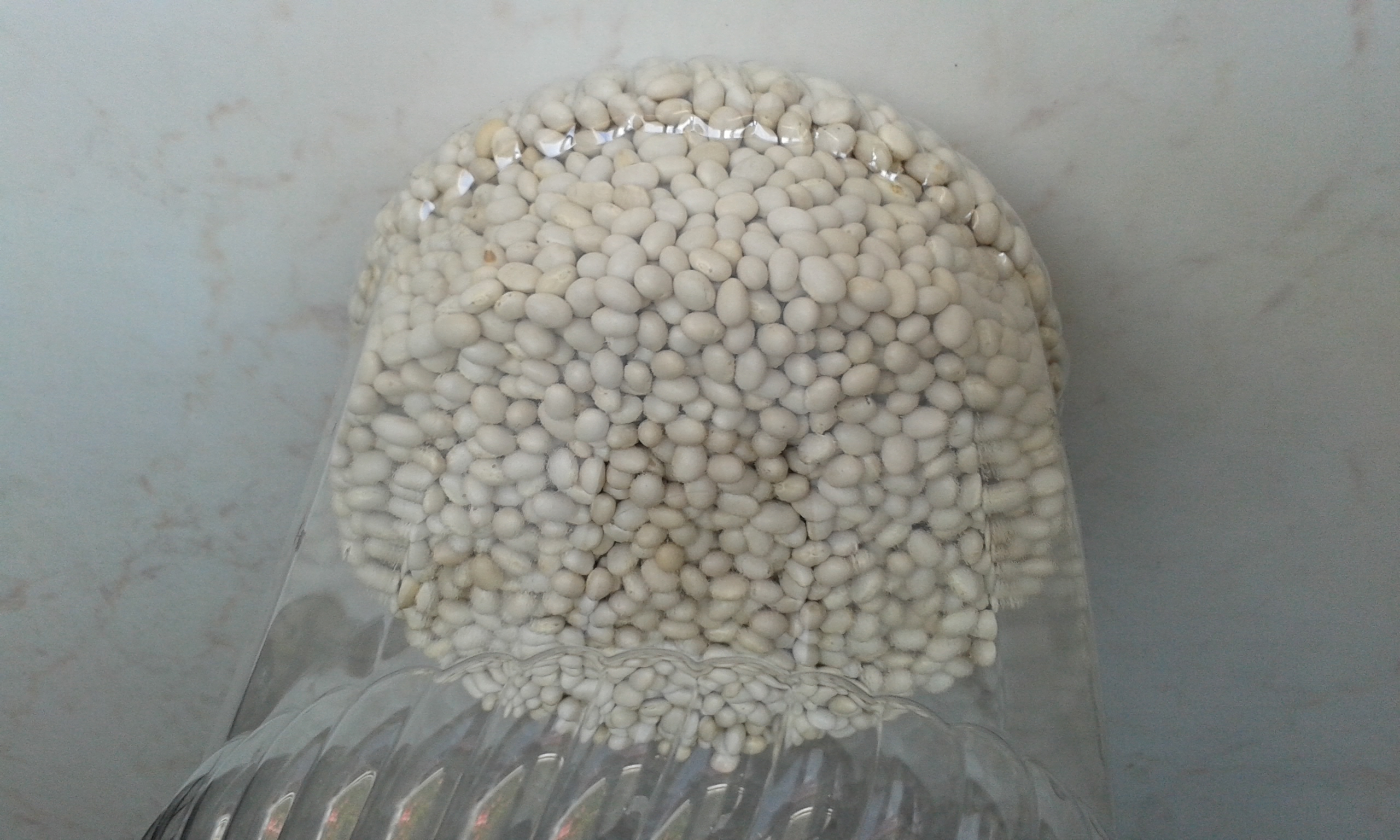
These foods are pretty affordable and have very long shelf lives. Dry whole starches are a good source of energy, if you like to cook them from scratch.
Another variant for preparing some starches is sprouting. In this case we don't even have to cook them, we just have to keep them in a moist environment for several days.
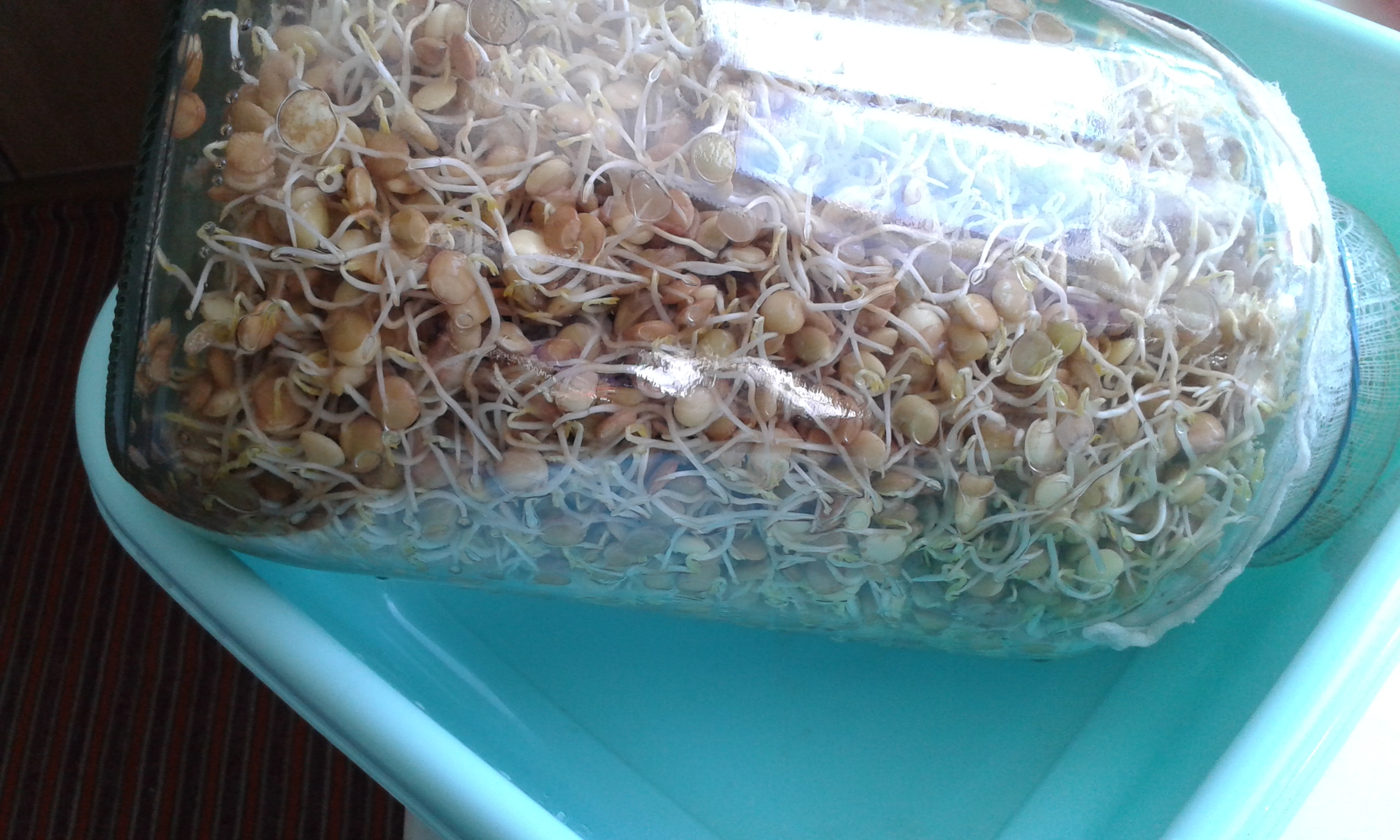
Canned whole starches:
The canned version of the foods mentioned above will help you save time as they're already soaked in water, cooked, and sealed.
You can even make your own canned beans with a vacuum sealing kit.
Here's a fact for which you don't even have to read studies: if you hold your hand in a flame, you will get burned. In fact, if you'd like to test the fact just mentioned, you won't need too many seconds. If a flame destroys your hand in seconds, imagine what it does to your food. That's just common sense, high temperature destroys food and creates carcinogenic compounds that cause health problems. The negative health effects of cooked food was the subject of previous articles. I just pointed out these facts again so we won't live under the impression that whole starches are some magical solution for optimal health. They might be a solution when we prepare in advance for long periods of time.
Nuts and seeds:
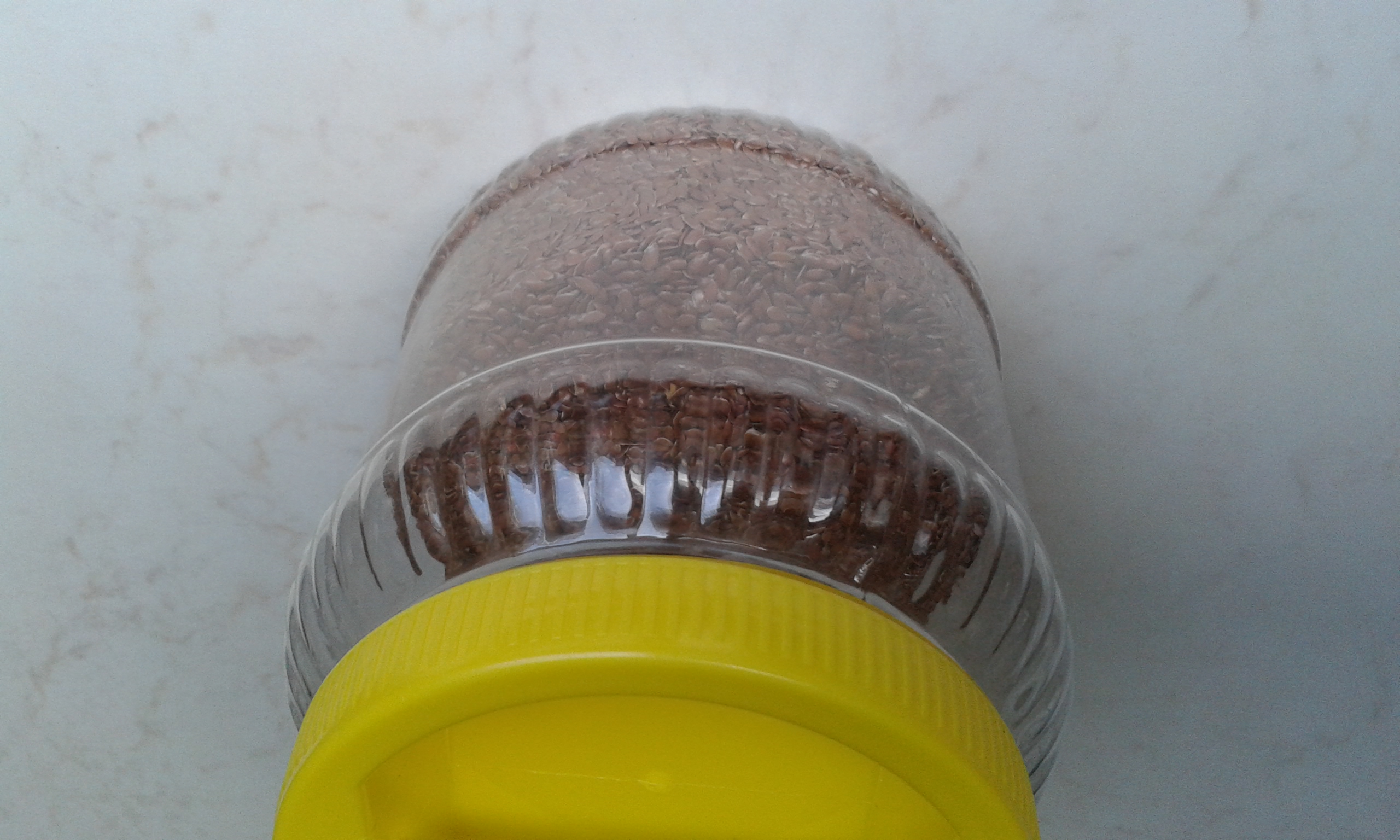
Nuts are seeds that are designed to be eaten, so i'll further on use the word seeds to refer to both foods.
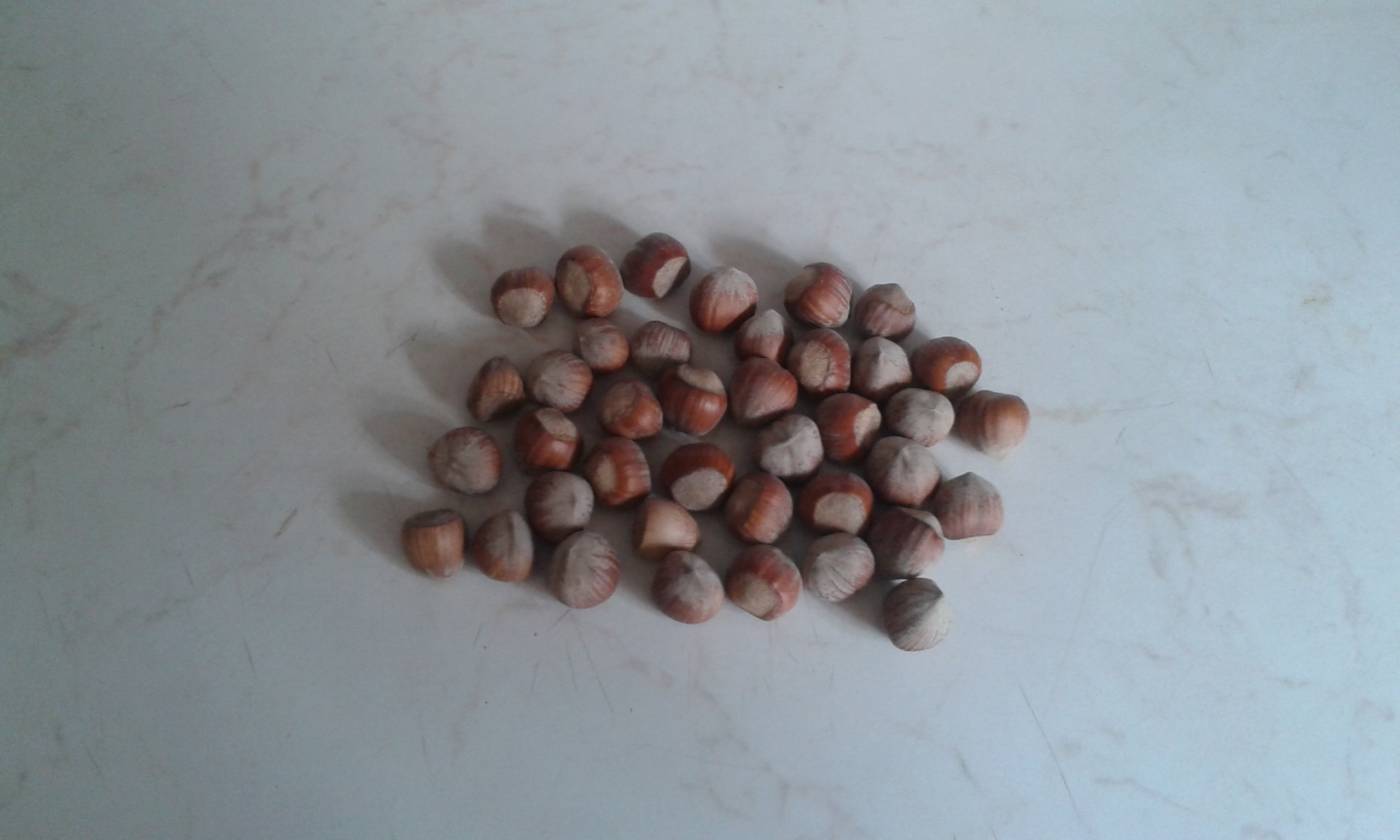
Another concept can help us make better choices regarding seeds: the omega-6 to omega-3 ratio.
Both omega-6 and omega-3 are good fats.
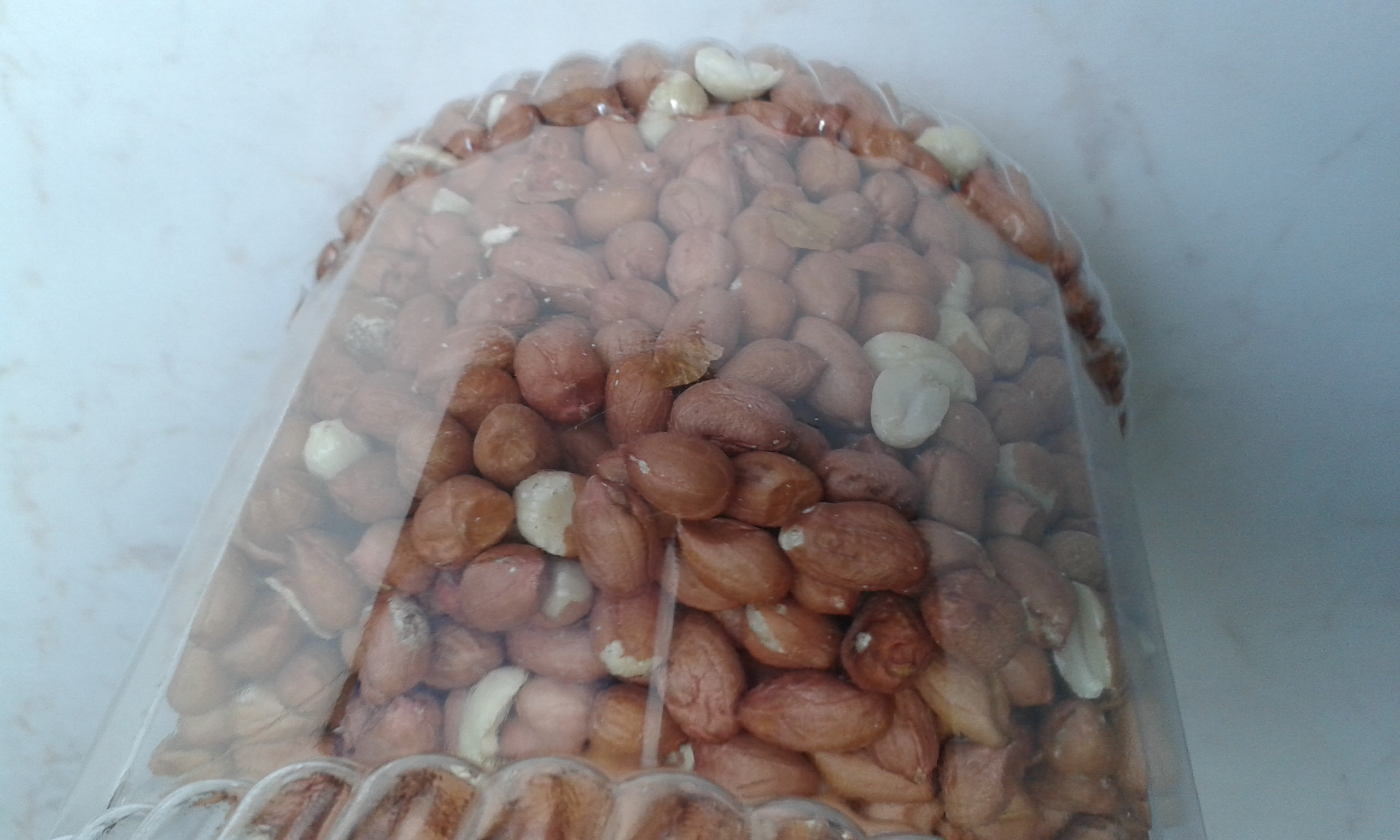
However, omega-6 can cause inflammation that in turn causes other health problems, when the ratio is unbalanced. This is where the optimal ratio becomes helpful. In the initial human diet the ratio was about 1:1, whereas now it's up to 20:1. This huge increase comes from the increased intake of omega-6 rich foods such as oils. In general, the literature tell us we can aim for a ratio of 4:1, which means for every gram of omega-3, we eat no more than 4 grams of omega-6. Cronometer doesn't offer the ratio, however by dividing the omega-6 to the omega-3 values, we can end up with the following numbers:
Data for 10Kg
| Seeds | omega-6 | omega-3 | omega-6 to omega-3 ratio |
|---|---|---|---|
| Peanuts | 1552.1g | 0.3g | 5173.60 |
| Almonds | 1232.0g | 0.3g | 4106.00 |
| Brazil nuts | 2387.7g | 1.7g | 1404.52 |
| Sunflower seeds | 2305.0g | 8.8g | 261.93 |
| Pumpkin seeds | 2067.1g | 12g | 172.25 |
| Cashew | 778.2g | 6.2g | 125.51 |
| Sesame seeds | 2522.7g | 26.3g | 95.92 |
| Hazelnuts | 783.3g | 8.7 g | 90.03 |
Data for 100g
| Seeds | omega-6 | omega-3 | omega-6 to omega-3 ratio |
|---|---|---|---|
| Pecan | 20.6g | 1.0g | 20.60 |
| Macadamia nuts | 1.3g | 0.2g | 6.50 |
| Walnuts | 38.1g | 9.1g | 4.18 |
| Hemp seeds | 28.7g | 9.3g | 3.08 |
| Chia seeds | 5.8g | 17.8g | 0.32 |
| Flaxseeds | 5.9g | 22.8g | 0.25 |
If you read other resources, you'll find other information. Still, all resources have similarities such as:
- Walnuts and hemp seeds have a ratio close to the optimal ratio;
- Flax and chia seeds have more omega-3 than omega-6, so they help you balance a ratio imbalanced by omega-6 rich foods.
So getting your ratio right won't be a problem, as flaxseeds are pretty affordable and they have a pretty long shelf life. We can actually digest flaxseeds and absorb their nutrients (including omega-3) only by eating ground flaxseeds, or by blending them when we make smoothies. The good news is that you can eat chia seeds without a kitchen grinder or a blender, as they don't need grinding.
Seeds last for long periods of time because they contain anti-nutrients that preserve and protect them until the conditions for germination are met. These anti-nutrients also protect seeds from the digestion process, so they prevent you from digesting seeds. And if you don't digest a food, you won't absorb its nutrients. Seeds are designed to stay in a latent state in dry environment and germinate in water.
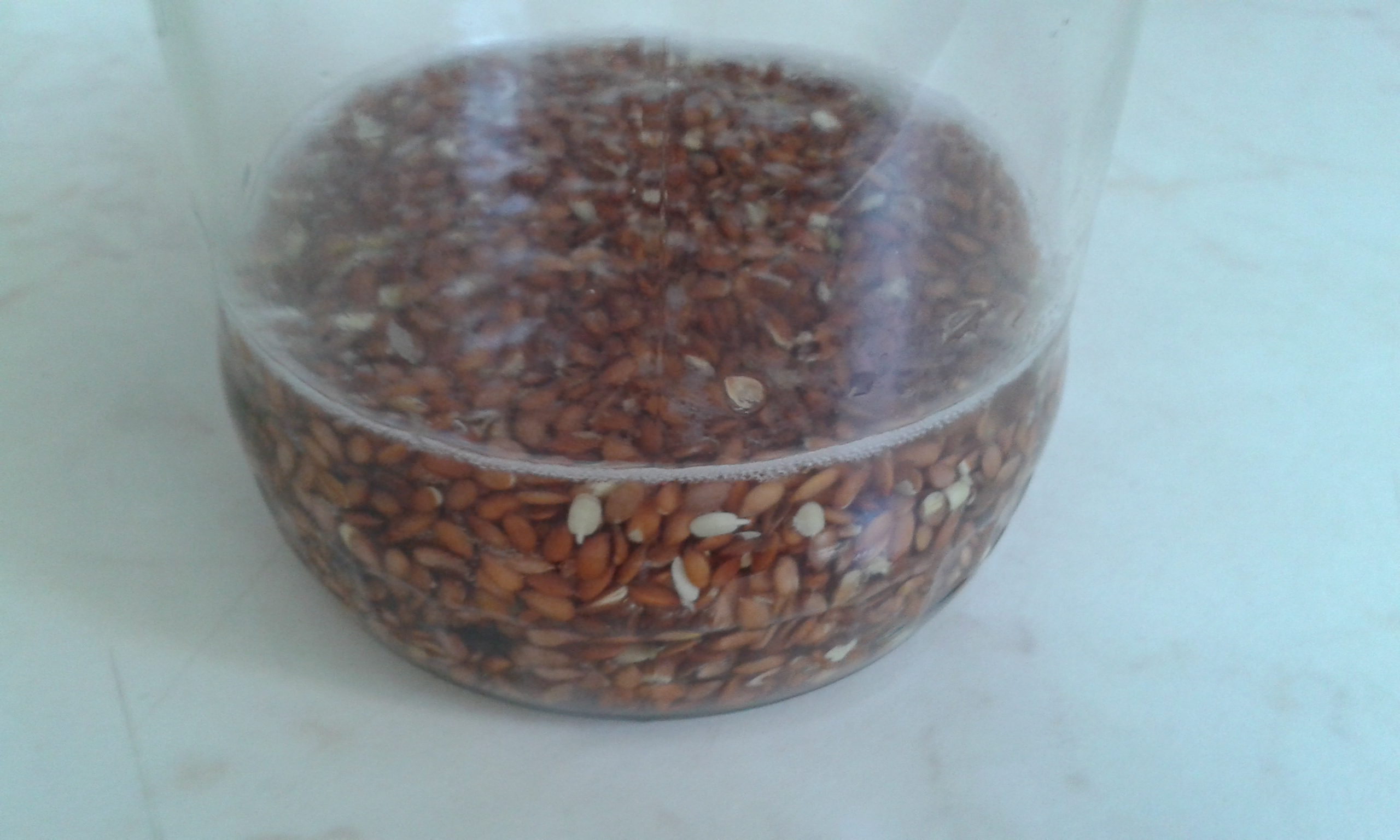
So by hydrating them we neutralize their antinutrients and we make them easier to digest.
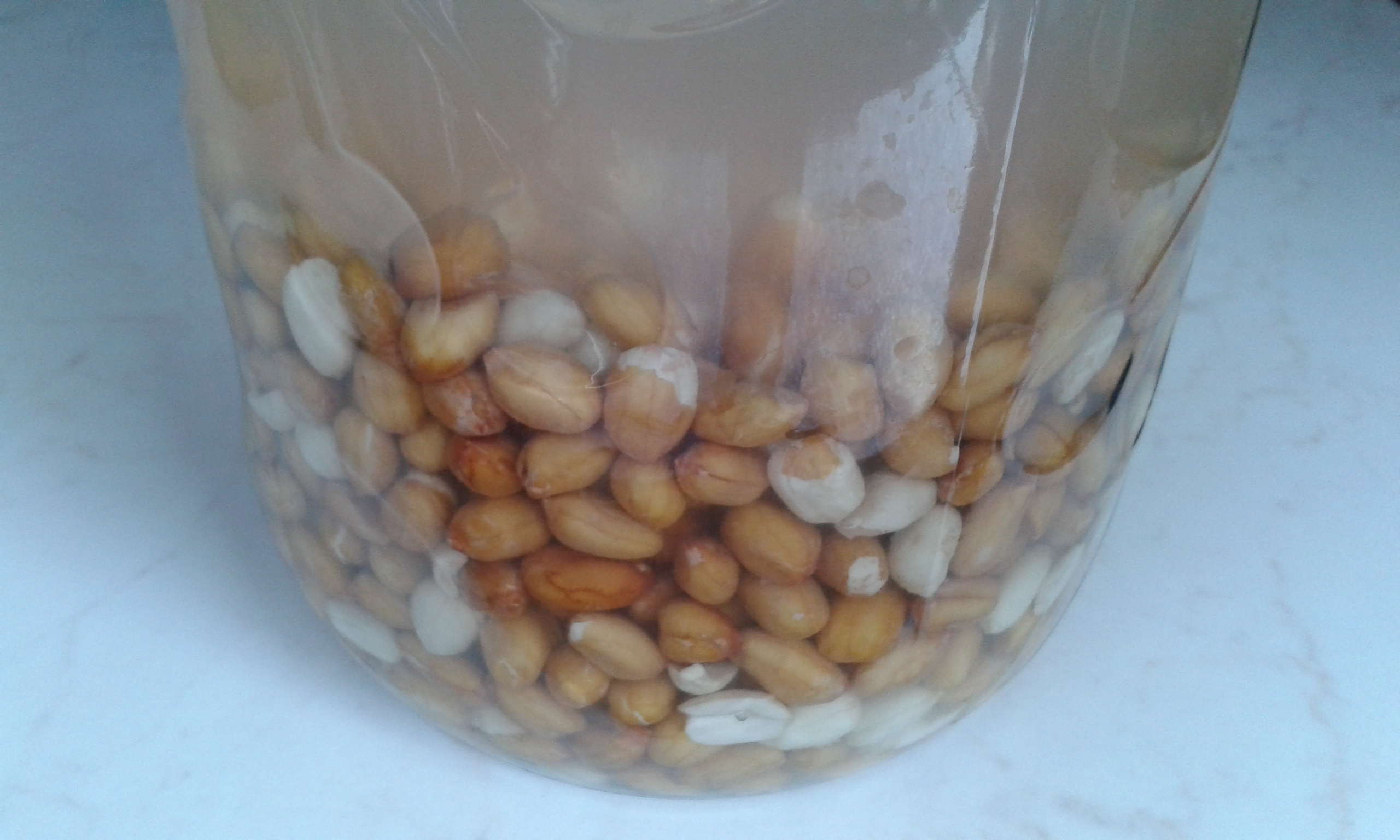
A small quantity of seeds offer you a lot of energy because they contain more fats than carbs, which is not optimal. And it's also true that these are whole foods, which means the fat comes along with fibers, minerals, vitamins, proteins, etc. Vegetable oils on the other hand are pure fat. In nature oil exists only as part of a plant. It's natural to eat fat by eating the whole food that contains it, and it's unnatural to eat fat (vegetable oil) extracted from food. Remember the whole food concept?
Highly processed foods contain vegetable oil among their main ingredients so they might be an even bigger threat to our health than seeds.
Instant meals
have the advantage that require minimal preparation or no cooking at all.
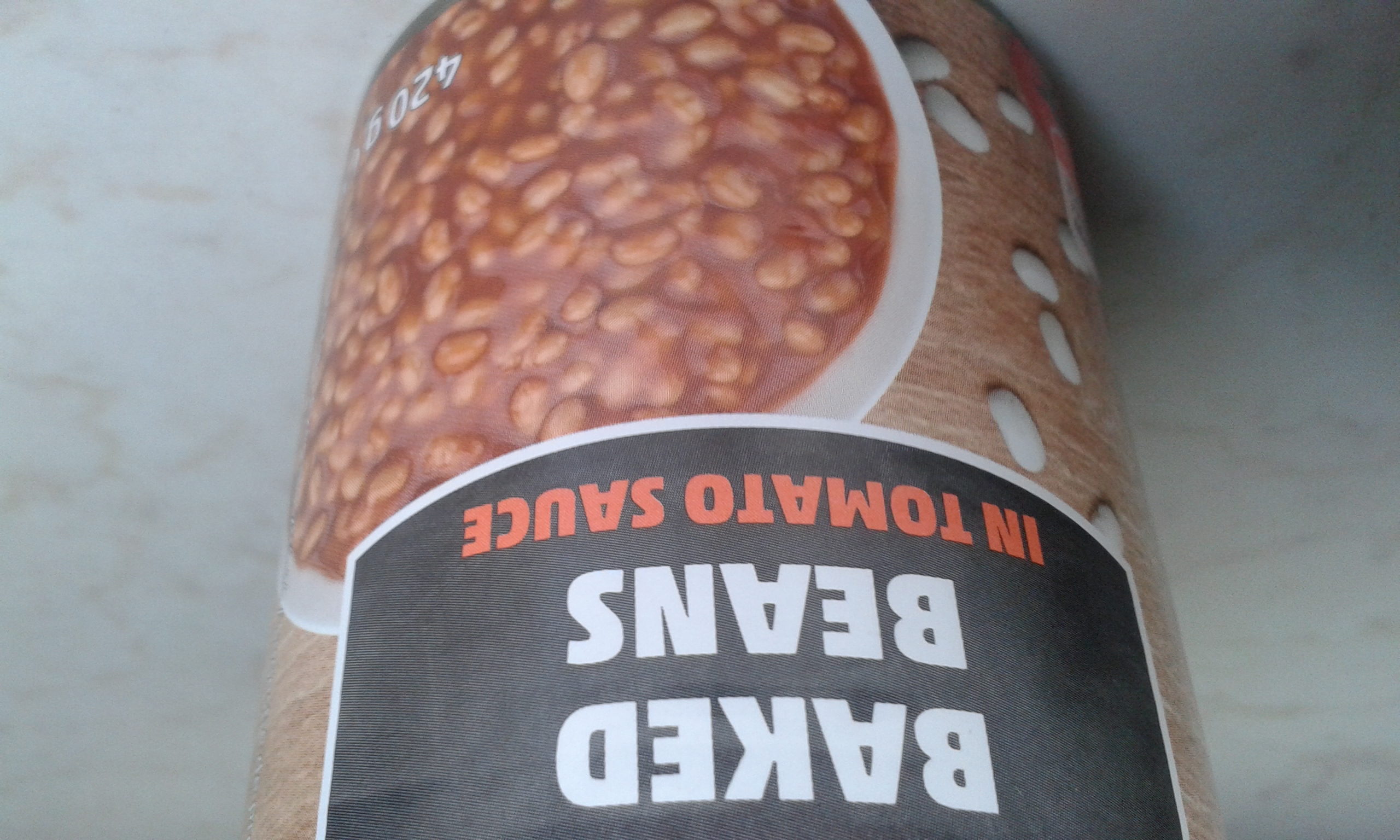
Even though instant meals are processed, there is a difference between:
- meals made for taste, that imply more processing and offer less nutrition.
- meals made for nutrition, that imply less processing and offer more nutrition, these ones are the subject of this paragraph.
There are multiple examples of instant meals that last a long time and help you get your energy from complex carbs:
- Beans in tomato sauce require no cooking at all,
- Instant mashed potatoes can be made only with cold water,
- Oatmeal can be prepared with water and additions that depend on everybody's taste. Or instead of water, you can use soy milk prepared from instant powdered soy milk.
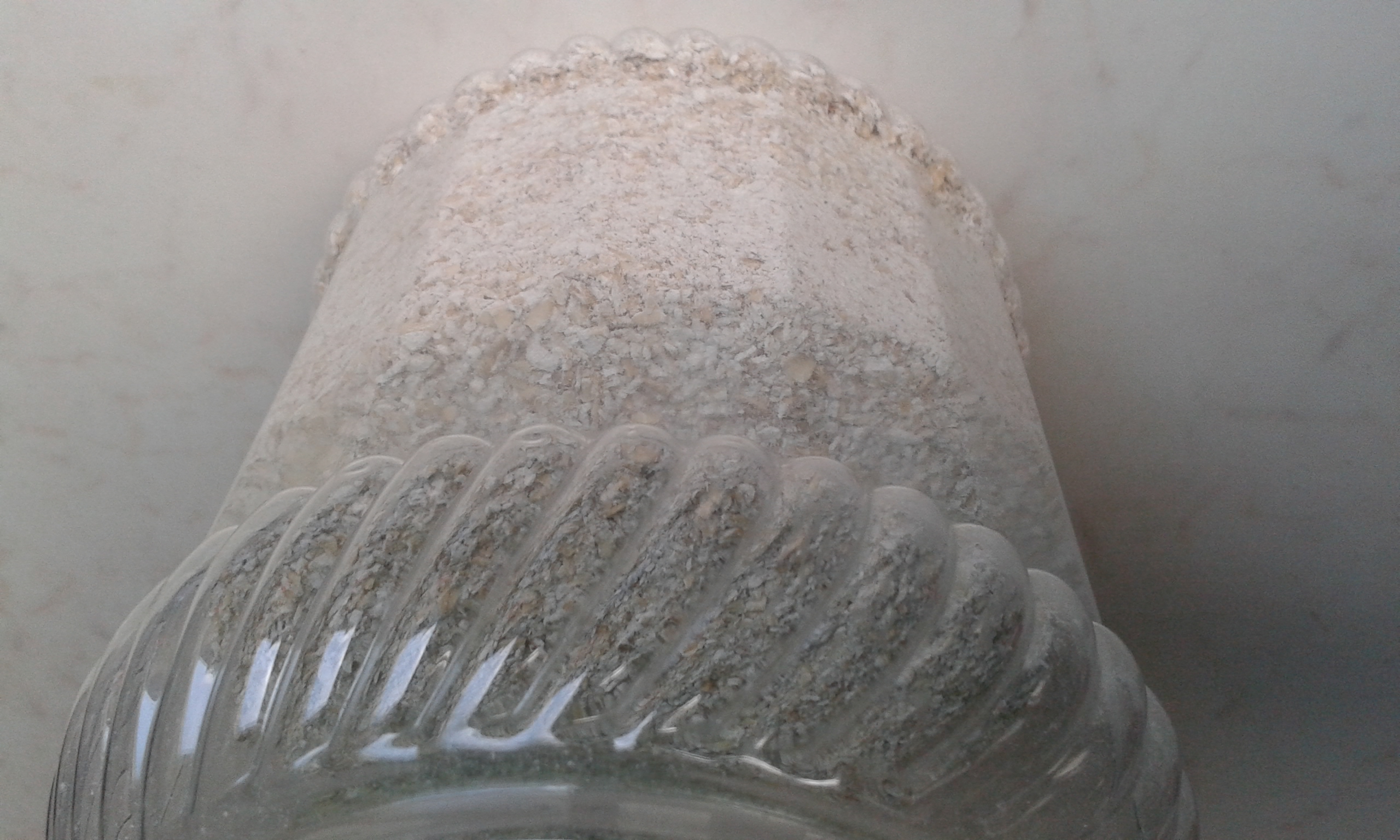
These instant foods might be good for a bug in plan, in which you remain in your current home.
How about a bug out plan?
Unlike a bug in scenario, in which you can eat and prepare the foods in your home, a bug out scenario means an emergency requires you to leave your home. Should this scenario arises, it would be good to be prepared. In this case you can carry a limited amount of baggage and your ability to prepare food is also limited, until you find a safe place to live.
What's a good way to prepare for this scenario?
How many cans of instant beans can you carry and how many days would you live off them?
What foods would be appropriate when you're on the road?
In this case instant food that offers you a lot of energy and nutrition, without preparation would be more appropriate. One example of such foods might be nutritious bars.
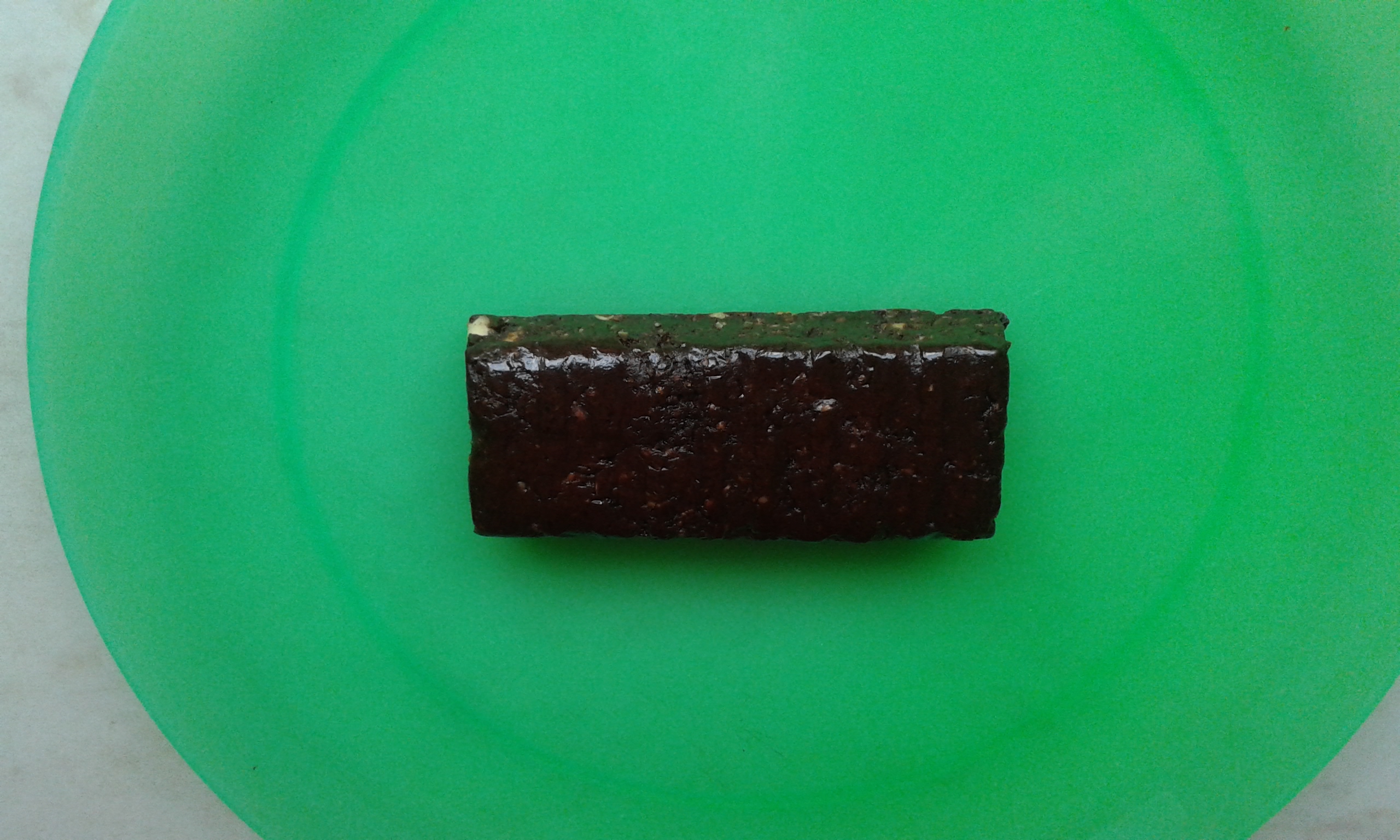
These instant foods offer you a lot more more energy and nutrition compared to the same quantity of baked beans, instant potatoes and oatmeal and require no preparation at all. Nutritious bars might not be the healthiest food, however they are healthier than candy bars that offer a similar amount of energy without to much nutrition.
Dried Pasta
Pasta allow us to make quick meals. However it's good to know some facts.
- It contains gluten, a type of protein that causes health problems for many people.
- Because refined pasta is low in fiber and high in simple carbs, it will cause spikes in blood sugar and it will keep you full for les time, as simple carbs release sugar into the blood very quickly.
Simple carbs are also linked with many other health problems.
Helpful Additions for preparing food
Canned tomatoes and spices
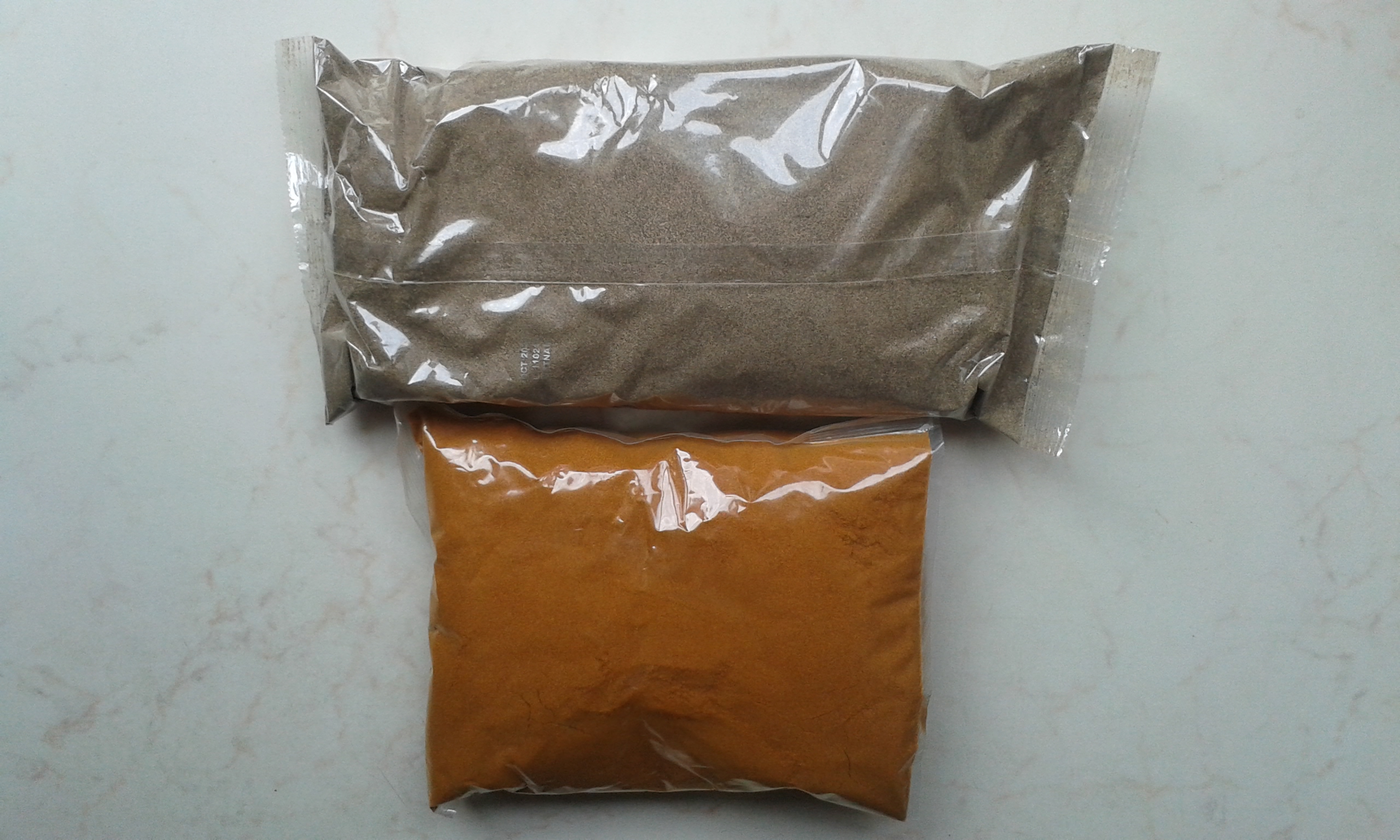
(black pepper, turmeric, paprika, curry, chilli, etc.) help you turn dry or canned starches into actual meals,
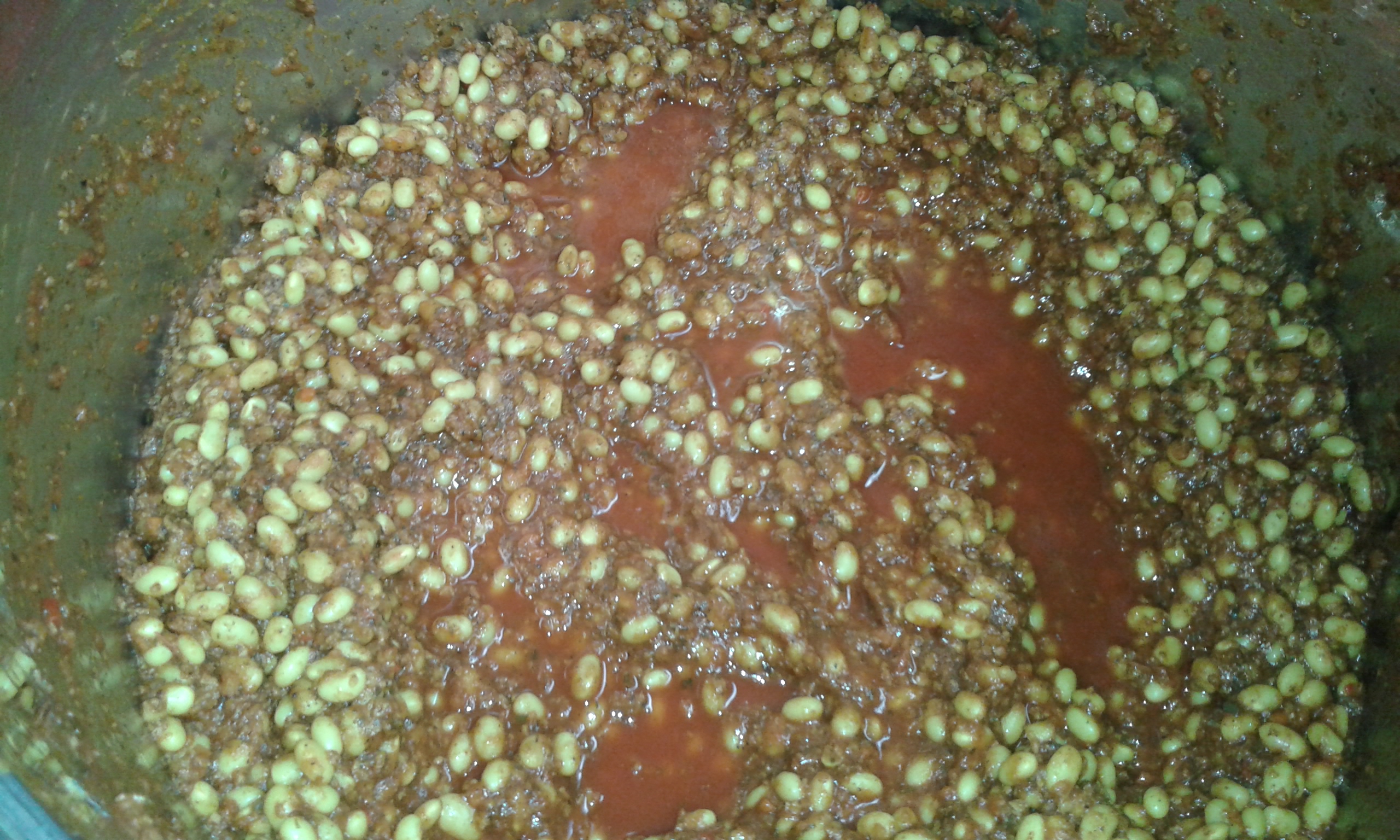
so you don't have to sacrifice taste when you prepare food.
A helpful addition for dry starches is baking soda. You can use it in the cooking water to soften the beans' skin, which makes them easier to eat.
How about sweet meals?
Carob powder,
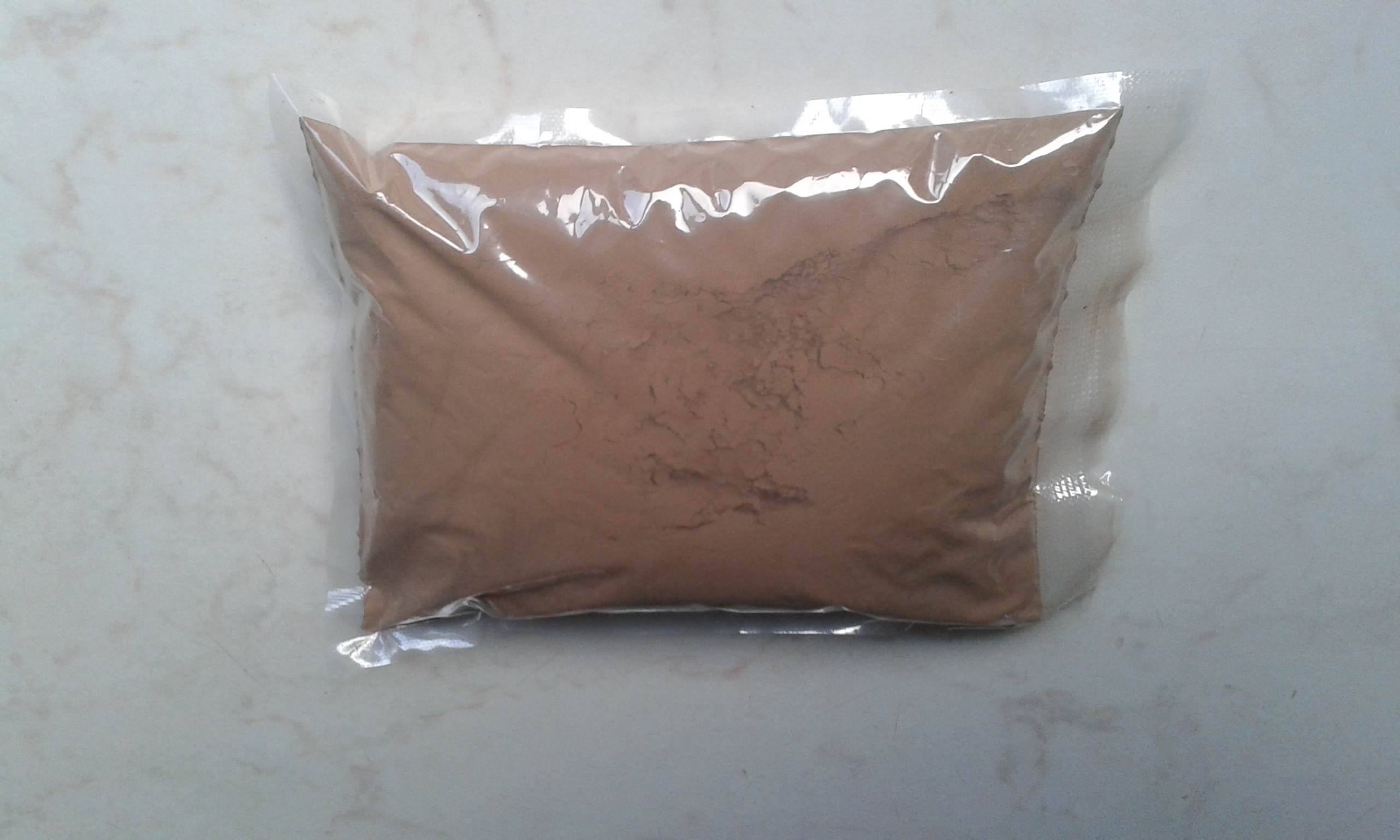
cinnamon and sweeteners (that exist in many forms, among which 2 whole food examples are raisins and dates)
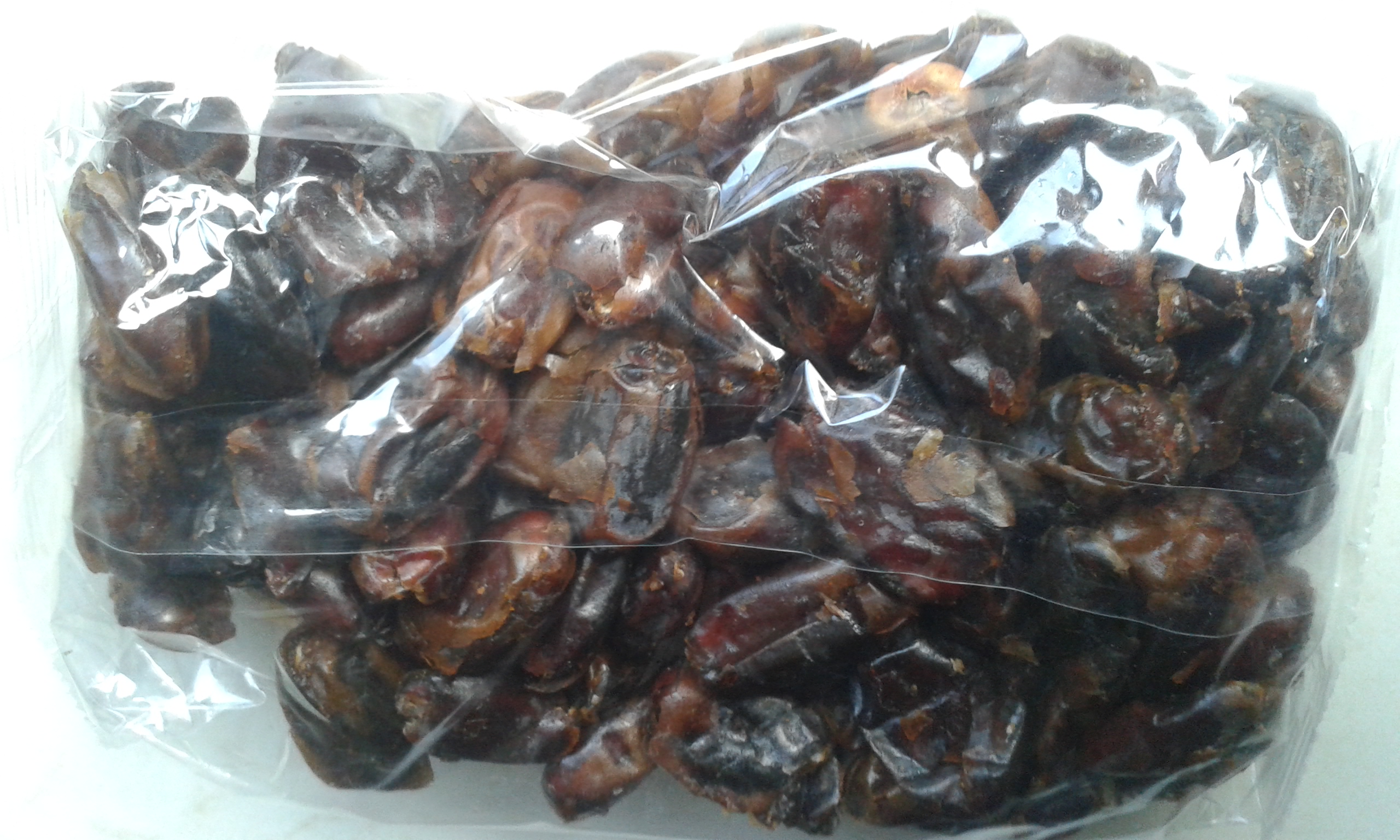
can help you turn oatmeals into actual meals.
Carob powder
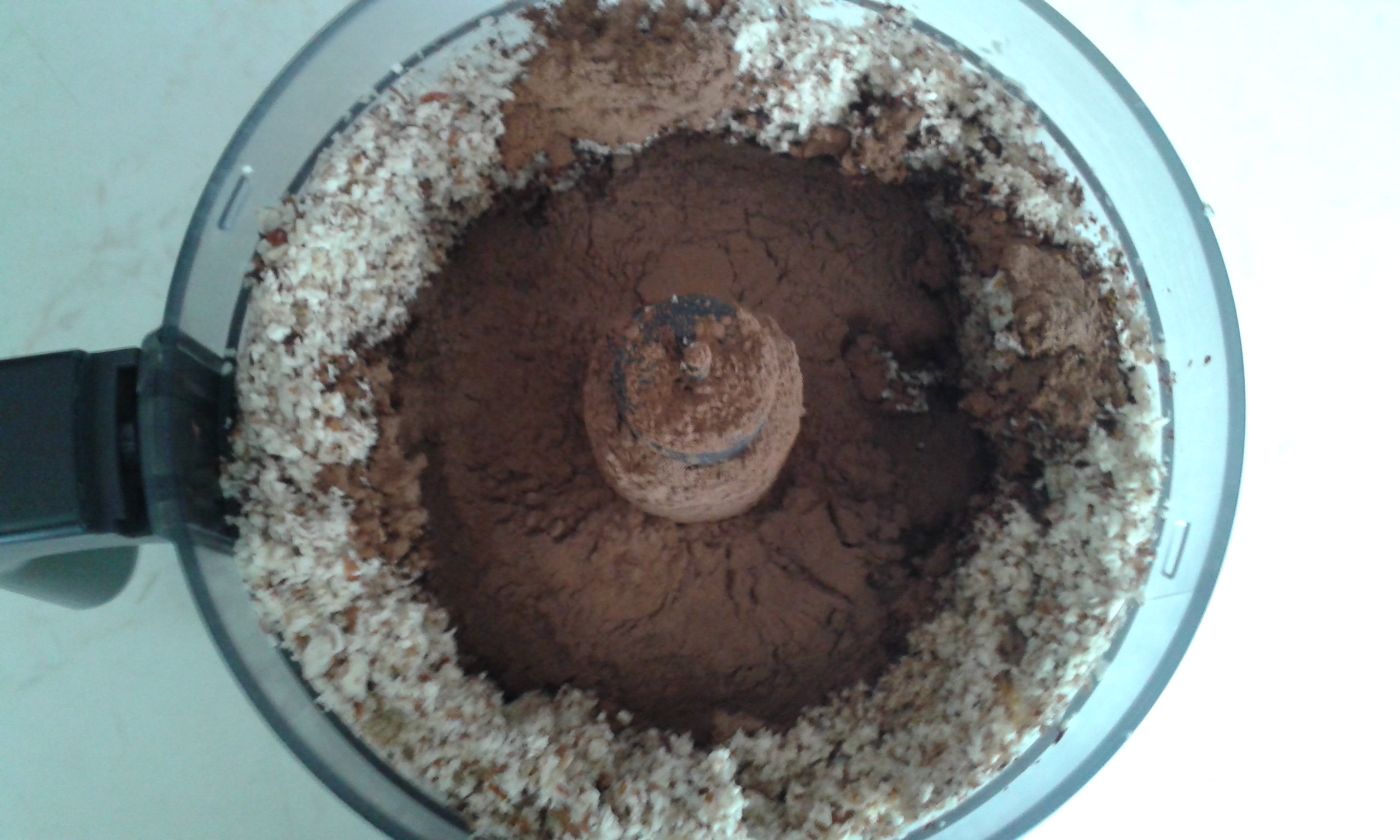
and raisins/dates,
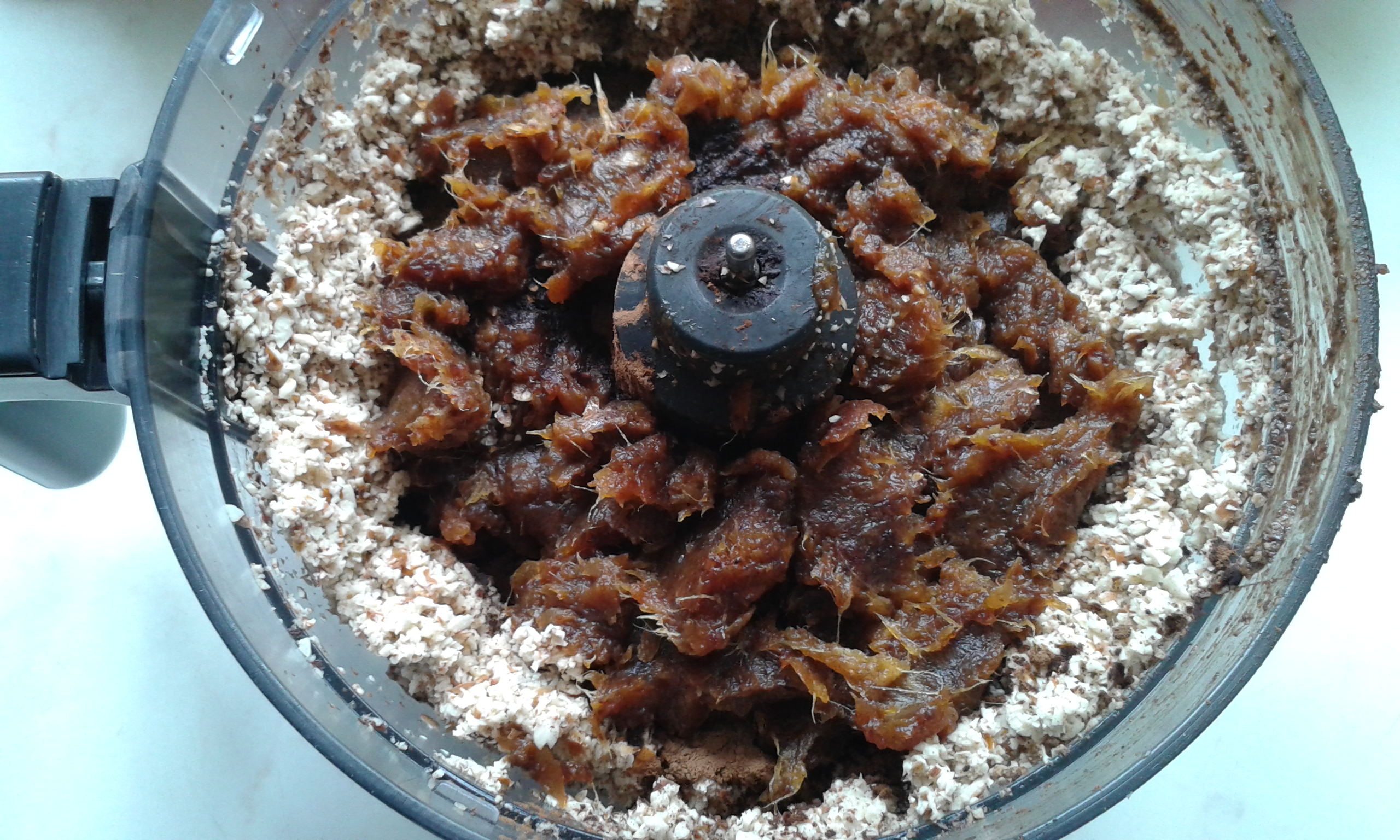
along with a kitchen machine, can also help you turn seeds into a cake,
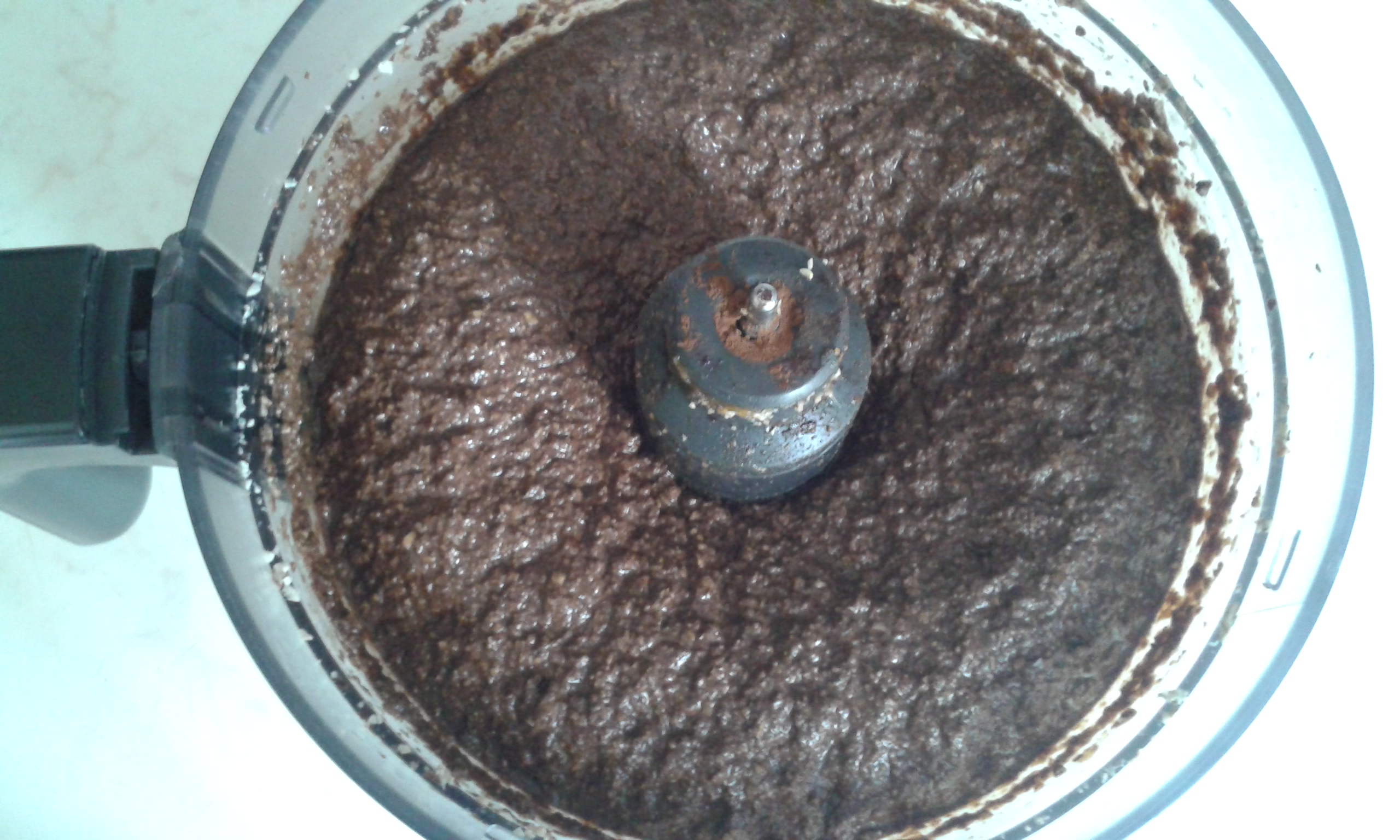
and even into homemade nutritious bars, with the appropriate recipe.
Nutrition solutions
While the cooked foods mentioned so far might be healthier than other foods, such as highly processed foods, it's also good to remember that
- the process of cooking reduces multiple micronutrients, and
- you can meet your nutrients needs from a balanced, varied diet that contains plenty of fruits and vegetables
Now we can take our vitamins, antioxidants and minerals from fresh food (fruits and vegetables).
How do we meet our nutritional needs when fresh food is not as available/affordable as now?
The freeze drying process preserve nutrients in fruits and vegetables for long periods of time (up to 25 years), so the antioxidants, minerals and vitamins in these foods will keep you healthy in challenging times.
Freeze dried foods only require water to prepare and they exist in a variety of forms: the whole food (freeze dried blackberries), dices (freeze dried diced mango), slices (freeze dried banana slices), powder (freeze dried banana powder).
You can even make your own freeze dry foods with a freeze dryer. These foods offer you more nutrition and last much more than canned foods, however they also cost much more.
How do you know you meet your nutritional needs from your meals or even from freeze dried foods?
What if you don't want to worry about nutrition when you prepare a meal?
You don't have to worry about nutrition with foods that combine the benefits of freeze dried foods and instant meals. You can meet your nutritional needs for a meal with nutritious powders, as they combine the nutrients from a variety of freeze-dried foods. Nutritious drinks made from instant nutritious powder can also help you prepare a more nutritious meal from oatmeal.
How about now? How well do we meet our nutritional requirements for a meal from our current meals?
We don't even have to think about it too much, as the answer comes straight from food producers. There are 2 kinds of fresh foods:
- Organic foods have better taste, offer you more nutrients and zero pesticides (toxins).
- Non-organic foods offer you less nutrients and lots of pesticides.
.jpg)
This means unless organic food is affordable and/or accessible:
- the data on cronometer doesn't help you know the nutrition of the food you eat,
- you eat non-organic food that's nutrient deficient and toxic, so you also have nutrient deficiencies and accumulation of toxins.
Even if you eat only organic fresh food, how do you know you eat enough to meet all you nutrient needs?
If you want to stay healthy without calculating the nutrients of every food you eat, you can use nutrition solutions that are designed to help you meet your nutrients needs.
Gardening tools
You can become more independent from food stores by growing your own food.
Water solutions
You can use rainwater (for drinking, for preparing food, for cleaning activities, etc.) with the help of a water collecting system along with a water filter.
Besides food, many other solutions are necessary for maintaining our health:
- we need running water,
- if we use electronic devices, we also need electricity.
- unless the weather is always warm where we live, we need to keep the house warm in the winter,
This article is more food related, so other ideas might be the subject of future articles.
Working on the effect and also on the cause
Let's suppose you went through the first year of challenging times, you did such a great job for your food security, that you're prepared for another 20 years, and you also have a solution for using rainwater. And let's also suppose that somehow you became self-sustainable regarding your house energy: electricity and house heating.
Is this what life is supposed to be, a chase for survival, is this the best we can do or are we smarter than this?
Let's suppose you'll survive the upcoming events, because you prepared in advance. Then what?
Will food be abundant all of the sudden?
If we're just stockpiling food, we're working on the effect, not on the cause. If food security will actually be affected to such a degree that only prepared people will survive, then there has to be a cause.
What would cause a food crisis, even though our planet is capable of producing enough food for everyone?
If you think it's good to work on both the effect and the cause, How can we also work on the cause, so we make sure food security won't be a problem for us or for our children?
Summary
- Food is one of the factors that determine our health.
- If you like to be a prepared person you can prepare your food security in advance.
- Even though fresh fruits and vegetables don't last for too long, several simple concepts can help us make healthier choices when we prepare our food security in advance for long periods of time, as they can help us know which long shelf life foods are healthier than others.
- The above mentioned foods have their advantages and disadvantages: Both seeds and starches move you away from an optimal diet. So it's up to everyone of us to decide what's a good way to prepare our food security in advance.
- A food for thought might be ideas for working on the cause.
You physical health also depends on your financial health: The better your financial health, the better you can afford healthier food, the better your physical health will be. And financial health in turn depends on us. There are multiple financial opportunities through which we can improve our financial health, even from the comfort of our homes.

It's up to us to leverage the opportunities in front of us.
This article are part of a book.
See you in the next article. Until then, in the comment section you can share your opinion for the questions of this article. Thanks so much for reading. Have a great day.
Useful clarifications:
- The point of these resources is not to turn this article into an advertisement,
- Ideas for nutrition solutions or ideas for improving your financial health by working from home, were the subject of a previous article.
- The above content is not specialized knowledge and only your doctor can give you medical advice
- I'm not qualified to talk about food preparedness,
- I don't necessarily endorse all the views in the following resources,
- I'm sharing multiple resources so you can inspire from multiple people who are qualified in this field.
- The title of this article is actually encouraging a conversation. So, what do you think about preparing in advance for your health? You can comment below and let me know.
Resources: food supply chain, food security, current events, food prices, past events, food supply, energy supply,
cooked food, Cronometer, the 80 10 10 guideline, nutrition, Fatty acid ratio,
What's a prepper?
Video resources about prepping food
Articles about prepping food 4 5 6 7 8 9 10
Bug out food
Rainwater collection & filtration,
The images that aren't from my phone are from resources of royalty free images, such as: unsplash, pexels, pixabay, pxhere
This sounds interesting enough.
!LUV
!HBIT
@aschatria(1/1) gave you LUV. tools | wallet | discord | community | <><
tools | wallet | discord | community | <><
HiveBuzz.me NFT for Peace
Success! You mined .9 HBIT & the user you replied to received .1 HBIT on your behalf. mine | wallet | market | tools | discord | subscribe | <>< daily
The community has spoken. The smallest HBIT unit is the quark!
Thanks for stopping by. What do you think about the questions of this article?
I think we should be able to understand that appreciating agricultural workers would be a smart thing, and putting an entire supply on politically agreed exchange and international trading is a dumb thing that only benefits a supplier aka politicians and their friends.
Our society on a civilizational scale looks like it is programmed into its own doom to look down on people who work the most to produce for everyone.
I think this is a product of pure greed.
I don't consume processed because I and my kid are lectin intolerant and food is full of soy which we do not tolerate ( even frozen things), chems ( none of us eat in nature, like carrageenan that causes all sorts of digestive issues including liver inflammation), and stuff we really don't need to put us in an early grave.
Our food production in total is adjusted to only benefit the reseller.
If we are about to descend into chaos better prepare some rashes, like dry stuff, I opt for glass and food preserved in oil... stuff like that. You never know when this madness will escalate.
I doubt people in the countryside will feel it, but a few dry months and yield will be insufficient. Growing cultures like millet and hemp, and domestic cultures instead of demanding hybrids is an answer.
That's my opinion.
You're right, we should evolve beyond this system that's based on greed. How do we do that?